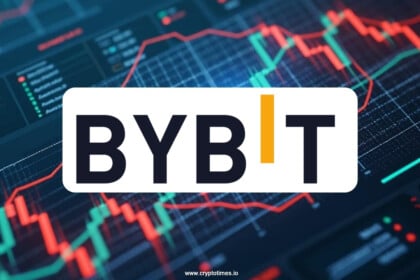India’s rollout of blockchain-based governance systems has reached a usage milestone. Over 34 crore government documents have been attested so far through the National Blockchain Platform as of October 21, 2025.
The platform is one of the initiatives of the National Blockchain Framework (NBF) developed by the Ministry of Electronics and IT (MeitY) to provide a common architecture for using blockchain in government services.
According to an official press release from the Press Information Bureau (PIB), the project was initiated in September 2024 with a budget of ₹64.76 crore and is based on the Vishvasya Blockchain Stack, hosted by NIC data centers at Bhubaneswar, Pune, and Hyderabad.
What began as a technical pilot has now expanded into multiple areas of governance. Property records, academic certificates, court documents, and logistics data are among the most widely verified categories. Of the total records, about 48,000 are from the Document Chain, which stores basic citizen certificates such as caste, income, and ration cards.
Growing sector adoption
Karnataka’s Aushada platform for tracking medicines is among the early supply-chain use cases. The filing states, “Using blockchain technology, all transactions in the supply chain are recorded in a tamper-proof ledger, ensuring traceability and accountability at every stage.”
The system has also entered the justice sector, where court notices, summons, and bail orders are now recorded on blockchain to prevent tampering, with 665 judiciary documents logged so far. The ICJS platform has added over 39,000 case records in the same way.
Property records are also being stored on blockchain, so buyers can check ownership history before a transfer, helping reduce disputes.
Alongside deployment, the government is attempting to create technical capacity within departments. Over 21,000 officials have been trained so far. In its statement, MeitY said the infrastructure is designed not only for present-day use cases but “to serve as a foundational layer for future digital public infrastructure.”
What comes next
Regulatory bodies have also started integrating the technology. TRAI has already implemented distributed ledger technology to monitor commercial SMS traffic, while NSDL is using blockchain for debenture covenant monitoring. The RBI’s digital rupee pilot is operating on a similar permissioned model.
The next phase of the rollout is expected to extend into systems like GST invoicing, land administration and the Public Distribution System (PDS).
Other pilot projects under study include blockchain-based tracking for blood banks and real-time monitoring of tax records, which are being tested to assess whether the technology can improve accountability in high-volume public services.
Also Read: Indian Court Rules Crypto is Property Capable of Ownership and Trust











